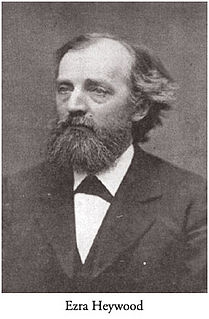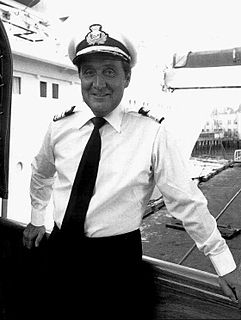A Quote by Hilaire Belloc
The old freedom sufficiently survives in the mind of the wage earner to give him the illusion that, while accepting insurance and maintenance from the capitalist state, he can still be a full citizen. He thinks he can have his cake and eat it too. He is mistaken. The great capitalists who procured these regulations from the politicians knew what they were at. They were catching their proletariat in a net, and now they hold it fast.
Related Quotes
The 'survival of the fittest' is beneficently inevitable; the capitalist is powerless against labor, unless the State . . . steps in, and helps him catch and fleece his victims. The old plea of despotism, that liberty is unsafe, reappears now in the mistaken notion that competition is hostile to labor.
If a market exists for low-paid work, then we should think about how we can make this type of work more attractive by providing government assistance. Of course, the wage-earner must be able to live off of his wages. We will not allow poverty wages or dumping wages. But the wage earner can receive a combined wage that includes both his actual wages and a government subsidy.
In that hour of trial it was the love of his master that helped most to hold him firm; but also deep down in him lived still unconquered his plain hobbit-sense: he knew in the core of his heart that he was not large enough to bear such a burden, even if such visions were not a mere cheat to betray him.
I'd accepted a while ago that there were too many reasons for me to even think about him romantically anymore. Every once in a while, I slipped a little and kind of wished he would too. It'd have been nice to know that he still wanted me, that I still drove him crazy. Studying him now, I realized he might not ever slip because I didn't drive him crazy anymore. It was a depressing thought.
[S]uppose the mind of [a] friend of humanity were clouded over with his own grief, extinguishing all sympathetic participation in the fate of others; he still has the resources to be beneficent to those suffering distress, but the distress of others does not touch him because he is sufficiently busy with his own; and now, where no inclination any longer stimulates him to it, he tears himself out of his deadly insensibility and does the action without any inclination, solely from duty.
The problem or the fundamental flaw of Obamacare was that they put regulations on the insurance, about 12 regulations, which increased the cost of the insurance. And so President Obama wanted to help poor, working-class people, but he actually hurts them by making the insurance too expensive to want to buy. I had someone at the house just recently was doing some work, and he said: "Oh, my son doesn't have insurance, he's paying the penalty because it's too expensive."
He only wishes there were something that would heal the scars in his mind, which he can still feel. He sees his mind now as an archipelago of islands that he labors to build bridges between - and while he's had great success engineering the most spectacular of bridges, he suspects there are some islands that he'll never reach.
Do I feel ancient to you now?" he murmered. "Too different from the person you loved before you knew this?" Her eyes were already glowing green, and her full lips parted. "No, you don't feel too ancient." Her voice was husky. "Or too different. You feel like mine. Whoever you were, whoever you are...you're mine." Mencheres smiled, his fangs stretching to their full length. "So you have spoken, so it shall be decreed. For all eternity.
That’s how Ptolemy imagined the disposition of his memories, his thoughts: they were still his, still in the range of his thinking, but they were, many and most of them, locked on the other side a closed door that he’s lost the key for. So his memory became like secrets held away from his own mind. But these secrets were noisy things; they babbled and muttered behind the door, and so if he listened closely he might catch a snatch of something he once knew well.
When I was young, we thought that Oscar Wilde was a great nobleman who had thrown his life away for love. Nothing could be less true. He slept with East Enders who were procured for him by Lord Alfred Douglas. He knew them only 'in Braille' - the curtains were never drawn back in the rooms in Oxford where he met those boys. It was the most sordid life you can imagine. And he was bleating about love and dragging the fair name of Mr. Plato into the trial - after a life like that?







































